How Much Water Should You Drink a Day? Recommended Intake & Benefits
-

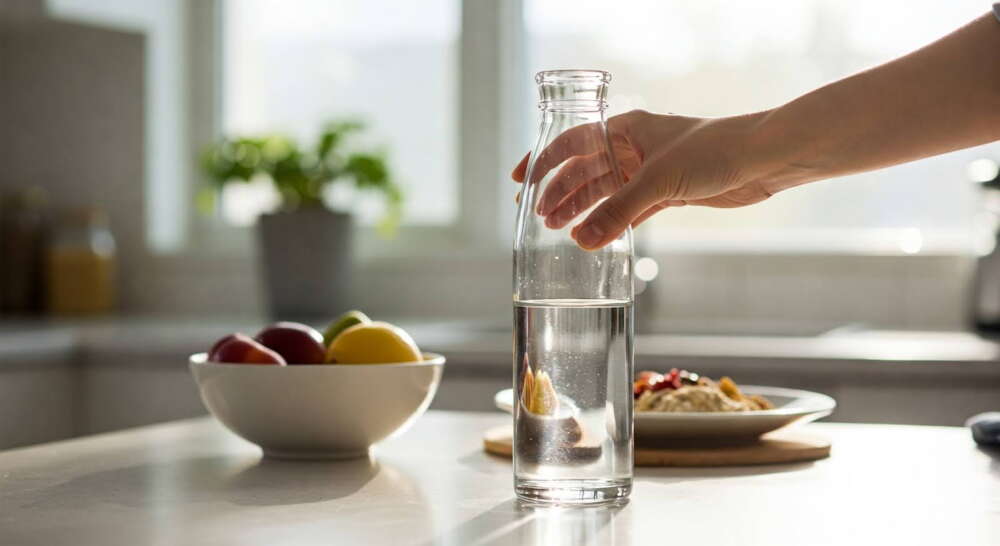
In this article
Staying hydrated is a simple yet essential aspect of leading a healthy life. But how much water should you actually drink a day? Does it depend on weight or activity levels? And what are the benefits of proper hydration? This blog will cover the science behind daily water intake, clear up common myths, and share practical tips to help you stay hydrated throughout the day.
Whether you’re looking to improve your skin, boost your energy, or simply feel your best, hydration plays a critical role in achieving these goals. Read on to learn everything you need to know about the recommended daily water intake and how to make hydration a consistent habit.
Why Is Staying Hydrated Important?
Water is more than just a thirst-quencher; it’s a vital component of nearly every bodily function. Roughly 60% of the human body is water, and proper hydration affects everything from energy levels to cognitive function. Here’s why it matters:
The Role of Water in Your Body
- Maintains bodily functions: Water helps regulate temperature, transport nutrients, and remove waste.
- Affects brain health: Even mild dehydration can impair focus, memory, and mood. Read more
- Promotes physical performance: Staying hydrated is essential for muscle function and endurance.
- Improves digestion: It aids in breaking down food and maintaining optimal gut health.
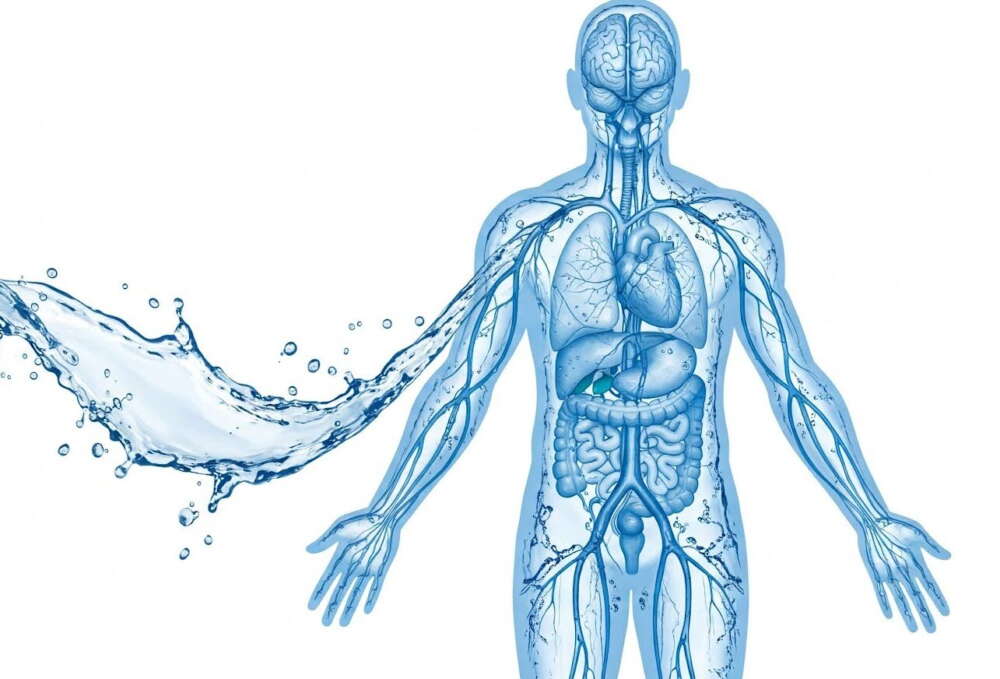
How Much Water Should I Drink a Day?
The age-old advice of drinking eight 8-ounce glasses of water daily (often called the “8×8 rule”) is a general guideline, but water needs can vary widely. Here’s a breakdown of factors that affect your ideal intake.
Recommended Daily Water Intake
The National Academies of Sciences, Engineering, and Medicine recommends:
- Women should drink about 11.5 cups (92 ounces) of total fluids daily.
- Men should aim for 15.5 cups (124 ounces) of total fluids daily.
This includes all fluids consumed, such as water, tea, and even the water content in foods.

Factors that Affect Water Intake Needs
While these general recommendations are helpful, they may not be accurate for everyone.
Here are some factors that can affect your individualized water intake needs:
Lifestyle and Environmental Factors
- Exercise: Sweat causes fluid loss, so drink an extra 1.5–2.5 cups (12–20 ounces) of water for every hour of physical activity.
- Environment: Hot or humid climates can increase sweating and fluid requirements.
- Pregnancy & Breastfeeding: Hydration needs are higher for expectant and nursing mothers. Pregnant women should consume about 10 cups (80 ounces) daily, while breastfeeding mothers may need up to 13 cups (104 ounces).
A more personalized approach to hydration involves your weight. A common method is to aim to drink half an ounce to 1 ounce of water per pound of weight per day.
For example: A 150-pound person should drink between 75–150 ounces daily.

Signs of Dehydration to Watch For
Dehydration can sneak up on you, especially if you’re not in the habit of monitoring your water intake. Here are common signs of dehydration:
- Thirst (yes, it’s a late indicator)
- Dry mouth or chapped lips
- Fatigue or low energy
- Dark yellow urine or infrequent urination
- Headaches or dizziness
- Dry skin or lack of elasticity when pinched
If you notice these signs, it’s a cue to up your water intake immediately. Read more
Benefits of Proper Hydration
Drinking enough water daily provides a range of health benefits that go beyond simply quenching your thirst. Here’s what you stand to gain:
- Boosts Energy Levels
Dehydration leads to fatigue and sluggishness. Proper hydration helps maintain optimal energy by supporting blood circulation and oxygen delivery to your cells. - Improves Skin Health
Water helps maintain skin elasticity and suppleness, reducing dryness and the appearance of fine lines. Staying hydrated can give you a natural glow. - Enhances Brain Function
Studies show that even 1–2% dehydration can impact cognition and focus. Drinking enough water keeps your brain sharp and in top form. - Supports Weight Management
Sometimes, thirst is mistaken for hunger. Staying hydrated can reduce unnecessary snacking and support weight management efforts. - Aids Digestion
Water keeps things moving in your digestive system, helping to prevent constipation and promote overall gut health. - Prevents Kidney Stones
Proper hydration dilutes minerals and toxins in the urine, reducing the risk of kidney stone formation.

If drinking enough water feels like a challenge, don’t worry!
These simple tips can help make hydration a regular part of your routine.
Set a Daily Goal
Use a reusable water bottle with clear volume measurements to track your progress throughout the day.
Make It Flavorful
Add natural flavors like lemon slices, cucumber, or berries to your water. You can also enjoy herbal teas or diluted fruit juices for variety.
Use Technology
Try a water-tracking app to stay on top of your hydration goals. Some apps even send reminders to drink water regularly.
Eat Water-Rich Foods
Foods like cucumbers, watermelon, oranges, and lettuce are high in water content and contribute to your daily hydration.
Pair Water with Routine Activities
Make it a habit to drink water before meals, with snacks, or after bathroom breaks.
Keep Water Visible
Having water within reach at your desk, nightstand, or car makes it easier to remember to drink.
Myths about Hydration
Hydration advice can get confusing with all the myths circulating on the internet. Here’s the truth behind some common misconceptions:
- Myth: Only plain water counts toward hydration.
Fact: Beverages like tea, milk, and even coffee contribute to your total fluid intake. - Myth: You have to drink water constantly, even if you’re not thirsty.
Fact: Listen to your body; thirst is a reliable signal most of the time. - Myth: Cold water helps you lose weight faster.
Fact: Drinking water (at any temperature) speeds metabolism slightly, but there’s no special fat-burning effect from cold water.
Take Control of Your Hydration Today
Staying hydrated isn’t just about drinking water; it’s about ensuring your body functions at its best. By understanding your recommended daily water intake and implementing simple hydration habits, you can boost your energy, elevate your mood, and even improve your overall health.
If you’re not sure where to start, assess your current water intake and make small, actionable changes. A hydrated body is a happy and healthy one!

Start Your Drinking Journey with Enya
Stay hydrated effortlessly with the Enya water filter pitcher! Designed to provide clean, great-tasting water, Enya makes it easy and enjoyable to support your health and hydration goals. Its elegant design and simple filtration system ensure fresh, filtered water is always within reach, encouraging you to drink more throughout the day. With Enya, staying healthy and hydrated has never been simpler or more refreshing.
You might also like these articles
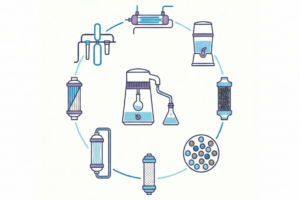
Is Your Water Filter “Too Clean”? Why Minerals Matter
Does your filter remove healthy minerals? Learn why calcium and magnesium are vital for hydration and how to filter toxins without stripping nutrients.
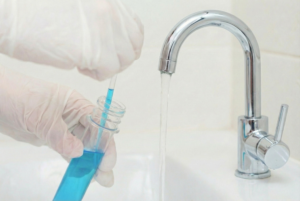
Why Does My Tap Water Smell Like Chlorine? (And How to Fix It)
Does your water smell like a pool? Learn why taps smell like chlorine, if it’s safe, and how to remove chlorine from water.
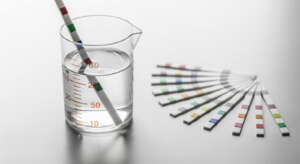
The #1 Reason Your Drinking Water Tastes “Off”
Picture this: you wake up in the morning, reach for a glass of water, and immediately notice something’s wrong. Maybe it’s that chalky film coating your favorite drinking glass, or perhaps it’s the crusty buildup around your kettle that no amount of scrubbing seems to eliminate. Your once-reliable coffee machine